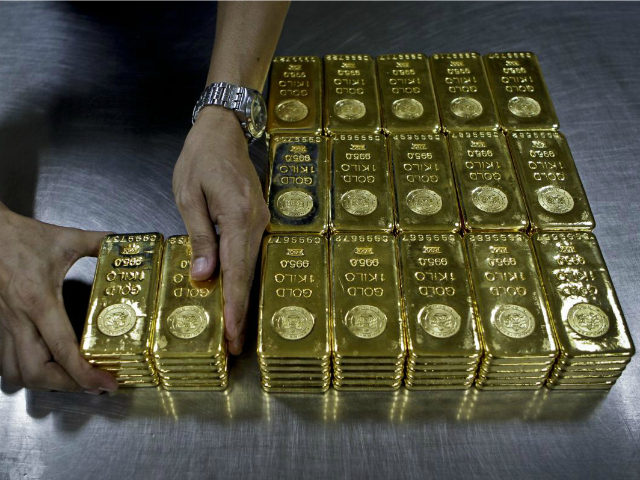WASHINGTON, D.C. — A United Arab Emirates (UAE)-based international gold refinery has established a branch that launders money for criminal and terrorist groups alike in the small “criminalized” South American country of Suriname, according to a national security think tank.
In a recently released report, the Center for a Secure Free Society (SFS) describes a “criminalized state” as:
[A country] in which the state’s senior leadership is aware of and involved – either actively or through passive acquiescence – on behalf of the state, in transnational criminal enterprises, where TOC [transnational organized crime] is used as an instrument of statecraft, and where levers of state power are incorporated into the operational structure of one or more TOC groups.
During a discussion on Capitol Hill, one of the authors of the SFS report, titled “Suriname: The New Paradigm of a Criminalized State,” identifies the UAE-based branch in South America dubbed the Kaloti Suriname Mint House (KSMH) as the company’s largest wing on the Western Hemisphere.
The UAE gold company, considered one of the biggest in the world, is officially known as Kaloti Precious Metals.
“In recent years, [Kaloti] has been hit by a series of scandals and allegations of being either a witting or unwitting conduit for the laundering of billions of dollars,” reveals the report authored by Latin America security expert Douglas Farah and Kathryn Babineau, a regional expert.
“Whatever gold moves through KSMH is unlikely to be legally produced in other South American countries, but is ideal for accommodating illicit flows of resources and the accompanying laundering at a high level,” it adds.
South America’s Kaloti branch in South America is reportedly jointly owned by Kaloti Precious Metals, the Suriname government, and private investors.
“Criminalized” Suriname, the smallest country in South America, provides a friendly environment for a company with Kaloti’s reputation, points out SFS.
Suriname also facilitates collaboration between criminals and terrorist groups in the region, such as Iran’s proxy Hezbollah, the Islamic State (ISIS/ISIL), and the Revolutionary Armed Forces of Colombia (FARC).
“The FARC, Hezbollah, and potentially ISIS, could relocate some of its income-generating activities to Suriname, for a price,” notes the SFS report, adding:
In this context, Suriname, as a vertically integrated criminalized state, causes a real concern for regional instability, insecurity, and the rule of law, and poses a unique and significant challenge to U.S. national security interests aimed at detecting, disrupting, and dismantling criminal and terrorist networks worldwide.
Suriname’s Kaloti branch is known to serve both criminals and terrorists, indicated Farah during Friday’s discussion, adding a “criminalized state” such as Suriname provides a permissive environment where everyone, both criminals and terrorists, are safe.
“If Hezbollah needs someone to move money they can find it there. If drug traffickers need someone who can help them with weapons they can find them there, and I think what these criminalized states do is create the environment in which all of that can happen,” he told Breitbart News.
Suriname President Desi Bouterse is a convicted drug trafficker.
The South American country is a perfect example “a fully criminalized state: the state has become a vertically integrated criminal enterprise, operating in equal partnership with TOC groups,” reports the think tank.

COMMENTS
Please let us know if you're having issues with commenting.